Seymourpowell designs Virgin Galactic spaceship cabin to maximise views of Earth
Virgin Galactic has revealed the interior cabin of its SpaceshipTwo craft, designed in collaboration with London studio Seymourpowell to provide "safety without distraction". The craft, dubbed the Virgin Spaceship Unity (VSS Unity), will be designed to take six passengers on a sub-orbital flight into space to view the Earth and experience several minutes of weightlessness The post Seymourpowell designs Virgin Galactic spaceship cabin to maximise views of Earth appeared first on Dezeen.

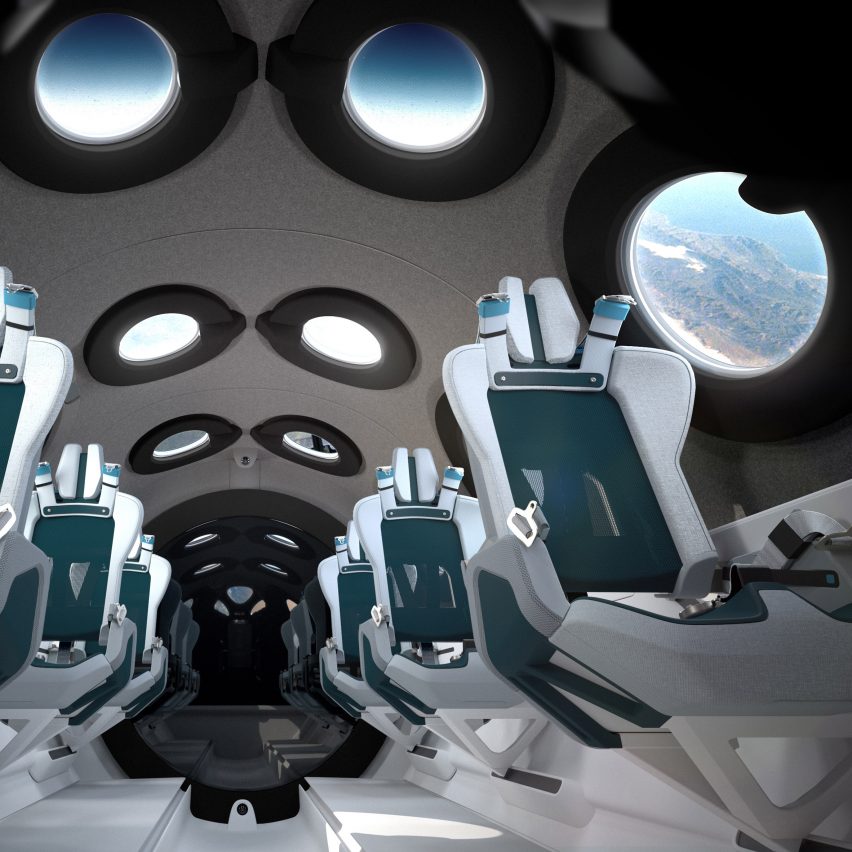
Virgin Galactic has revealed the interior cabin of its SpaceshipTwo craft, designed in collaboration with London studio Seymourpowell to provide "safety without distraction".
The craft, dubbed the Virgin Spaceship Unity (VSS Unity), will be designed to take six passengers on a sub-orbital flight into space to view the Earth and experience several minutes of weightlessness at $250,000 per seat. Sub-orbital spaceships don't have the power to achieve and remain in orbit, but instead fly up to a certain height before coming back down.
Designed to prioritise the view of the Earth from space, the VSS Unity cabin concept is lined with 12 large, porthole-style windows, six of which are positioned directly next to the individual passenger seats.
The cabin interior is complimented by icy hues of white, silver and teal, intended to be reflective of space itself and the Earth below.
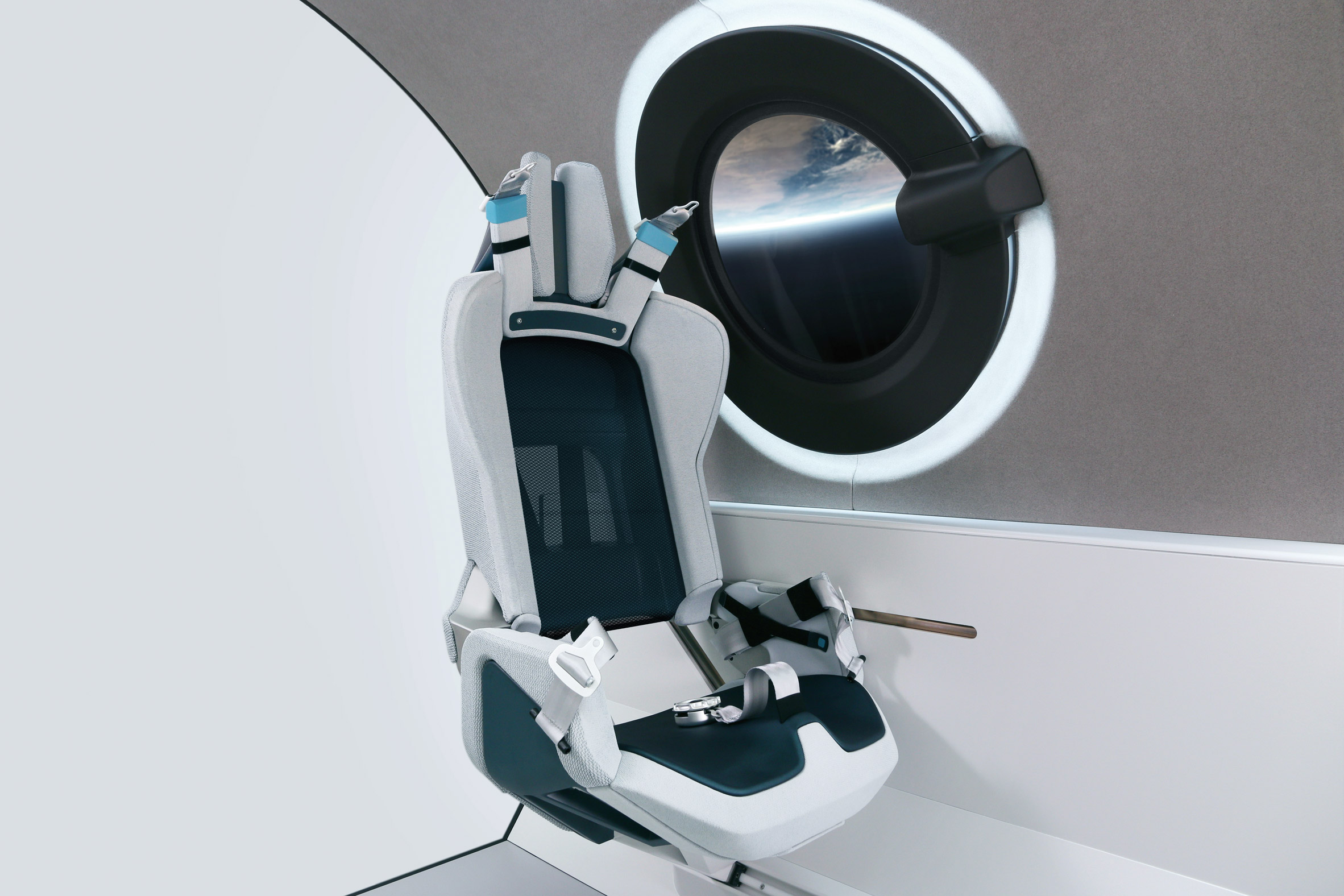
Virgin Galactic and Seymourpowell aimed to create an interior design that would "drive the excitement and anticipation of what's in store", without making the experience overwhelming.
The cabin is lined with a lightweight foam with a honeycomb structure, which optimises both the thermal and acoustic qualities of the interior as well as providing a soft touch while passengers traverse the space during their zero-gravity experience.
Each window is bordered by a soft, circular "halo" which both frames the views and acts as hand and footholds for astronauts when weightlessly moving around.
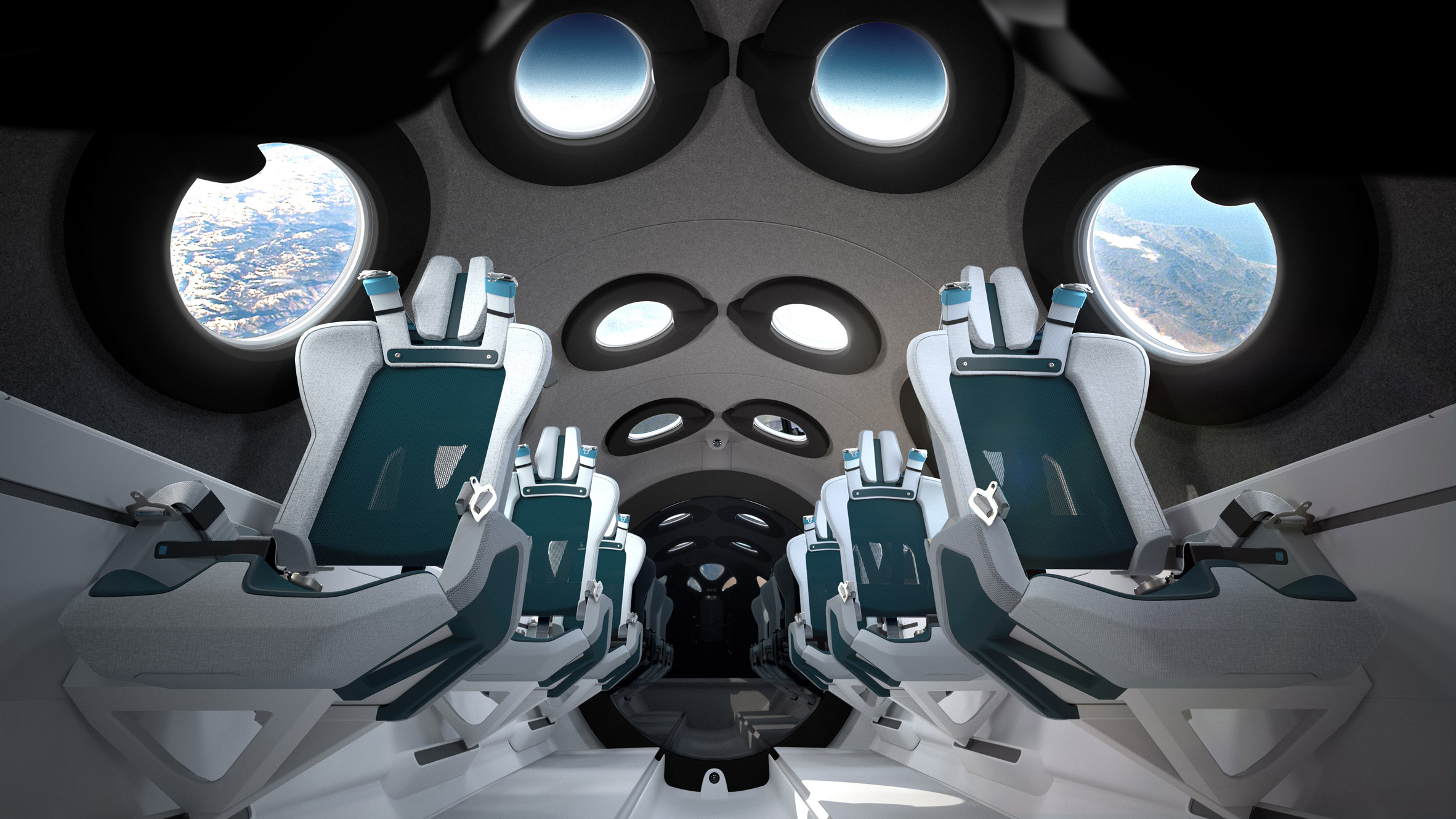
A large, circular mirror fills the back section of the cabin, also known as the aft bulkhead, to further enhance the zero-gravity experience by allowing passengers to view themselves as they float around.
"While it has been created to integrate seamlessly with every other aspect of the Virgin Galactic astronaut journey – the cabin is also the design centrepiece; providing safety without distraction, quietly absorbing periods of sensory intensity and offering each astronaut a level of intimacy required for personal discovery and transformation," the design team explained.
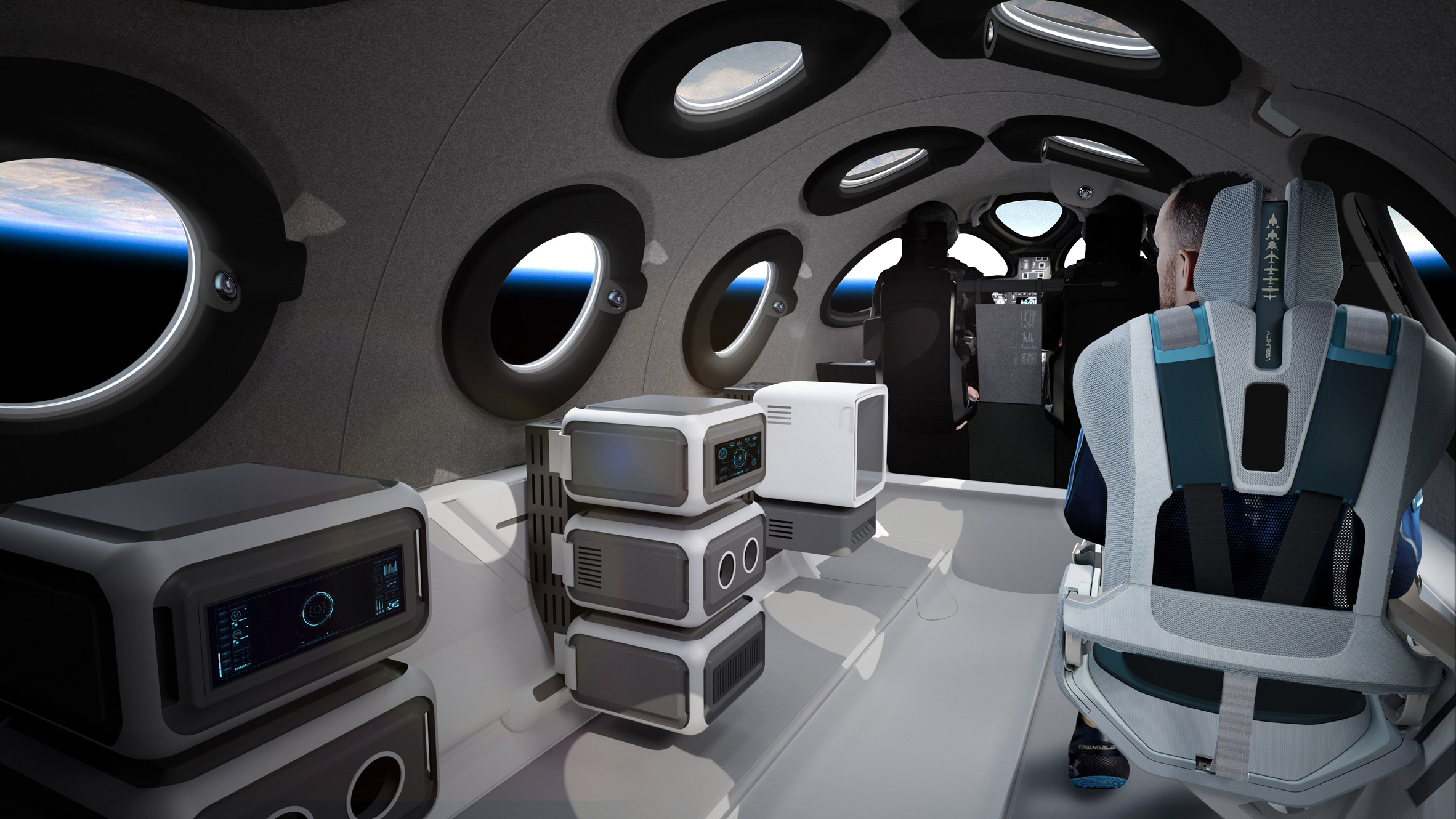
Each of the six passenger seats cantilever from the sides of the walls, opening up space in the lower part of the cabin. The interior can also be adapted to accommodate research payloads instead of space tourists.
The seats – which include two additional crew seats in the cockpit– are individually sized to fit each passenger's body measurements.
Made from aluminium and carbon fibre, with engineered foam and technical fabric finishings, the seat is covered with a 3D-knitted sleeve developed by US sportswear brand Under Armour, which simultaneously offers optimum comfort while indicating a sense of "performance and agility".
Described by Virgin Galactic design director Jeremy Brown as the craft's "iconic" feature, these seats are woven with the same frosty hues featured across the rest of the interior.
These colours were chosen to evoke both the "celestial spaces" above and the ocean below, while golden metallic detailing recalls "luminous" desert sands. These shades compliment the astronaut spacesuits, also designed by Under Armour.
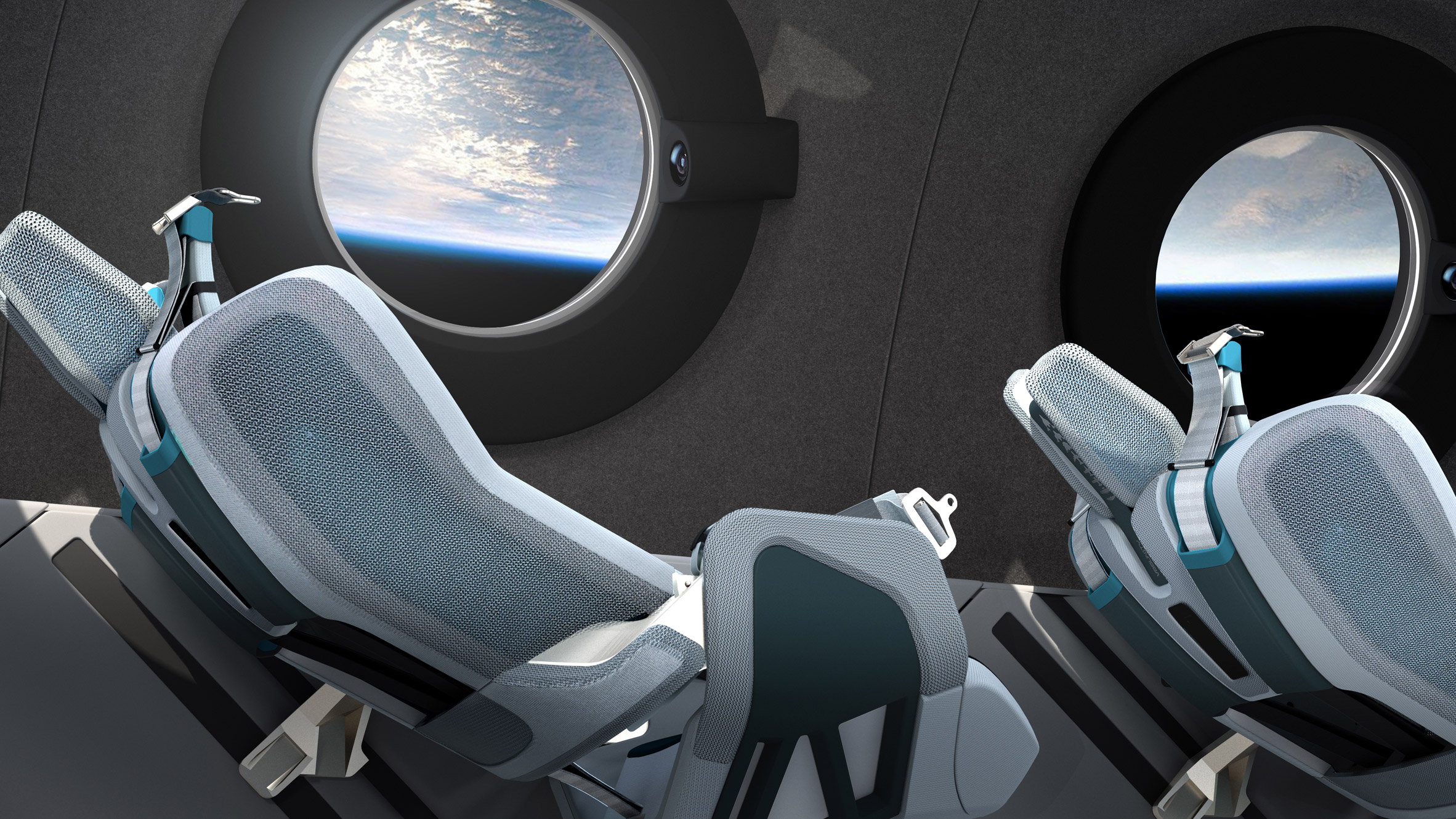
The seats are equipped with a pilot-controlled recline mechanism, which places passengers in the best position to manage gravitational forces without detracting from "the thrill of the ride", as well as freeing up the surrounding cabin space to act as a "float zone" when in zero gravity.
Each space tourist also has their own personal digital display within the seat-backs showing them live flight data including speed, gravity and remaining boost time of the flight.
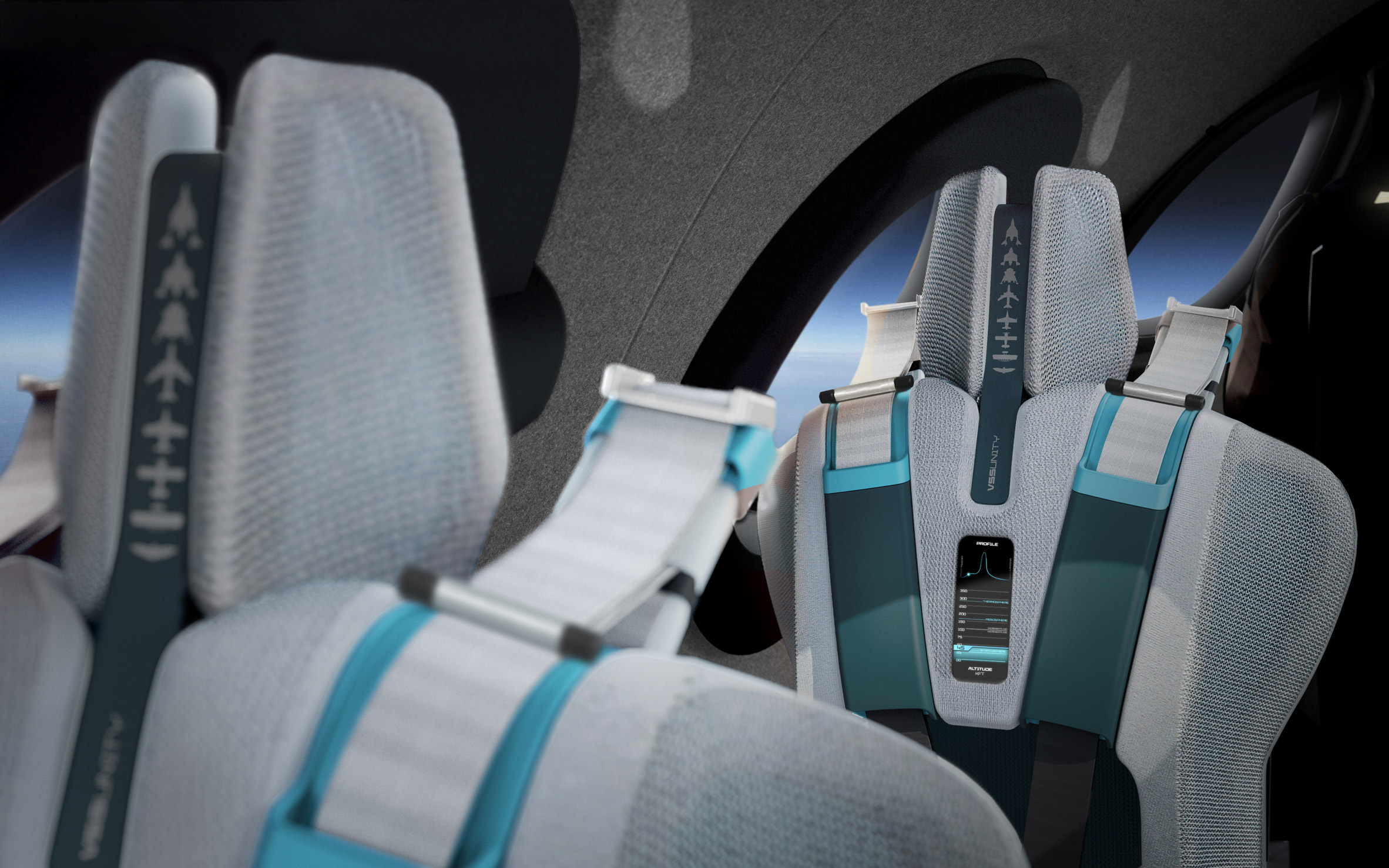
Virgin Galactic and Seymourpowell also incorporated mood lighting into the interior, which sees multi-colour LEDs hidden within the window "halos" illuminate in colours that reflect each stage of flight: with calming tones used on the journey to release altitude, or more vibrant colours during the rocket-boost phase.
This mood lighting is then turned off completely while in space, bringing focus to the views of Earth.
Sixteen cabin cameras, plus several in the cockpit and mounted externally, are also embedded to capture the experience in high definition, ridding space tourists of the need to bring their own cameras and recording devices.
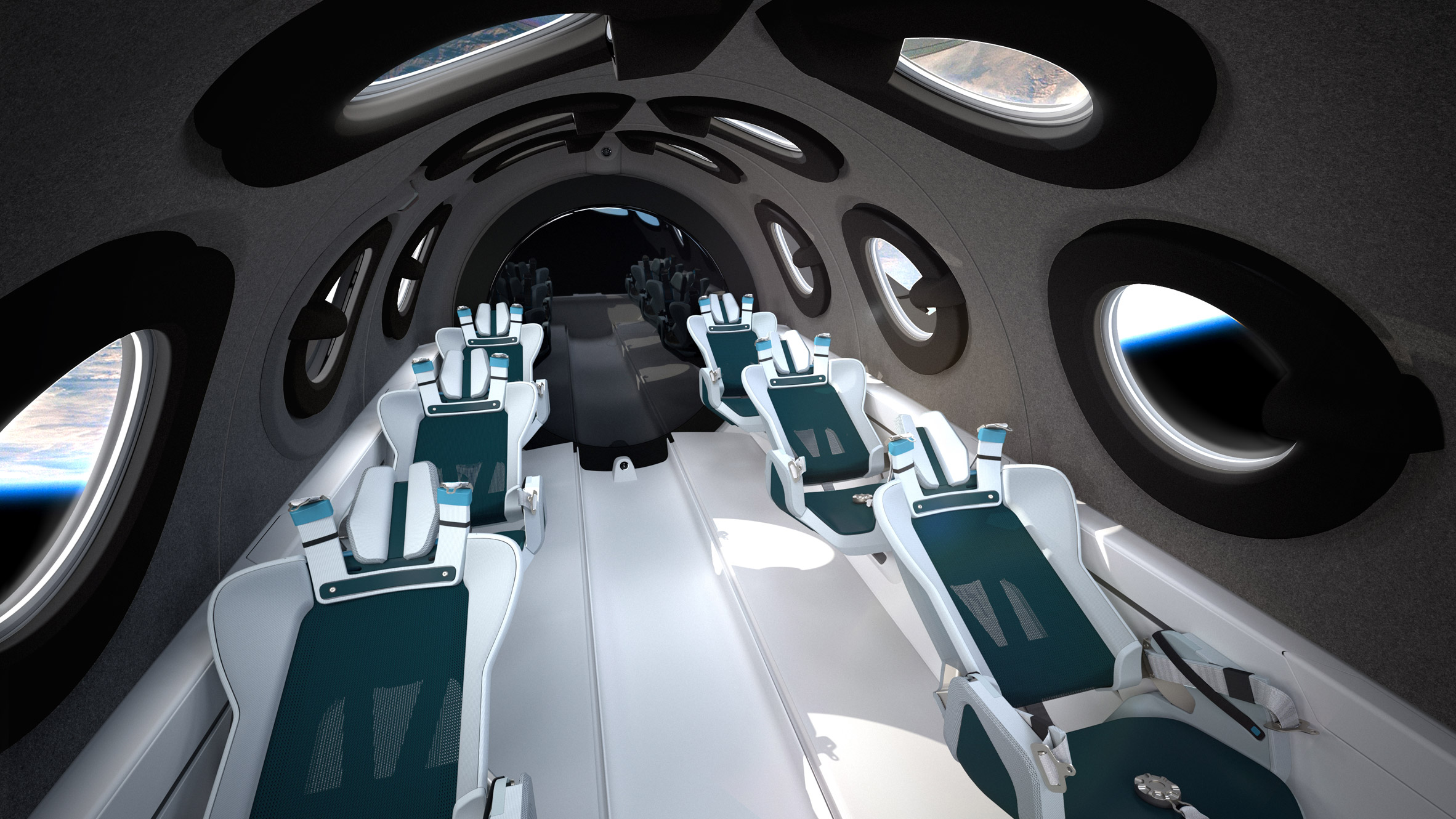
Based in London, Seymourpowell is an industrial design studio founded by Richard Seymour and Dick Powell in 1984.
The SpaceshipTwo cabin was unveiled during a YouTube live-stream on 28 July. An augmented reality mobile app was also launched after the event, which enables people to view the cabin in 360 degrees through their device.
Virgin Galactic completed the first successful supersonic, rocket-powered flight of its SpaceShipTwo VSS Unity prototype in April 2018.
Last year the company also revealed the desert-inspired interiors of its Virgin Galactic Gateway to Space building in New Mexico, USA, which which can be used by Virgin Galactic staff and tourists travelling beyond the earth's atmosphere.
The post Seymourpowell designs Virgin Galactic spaceship cabin to maximise views of Earth appeared first on Dezeen.
